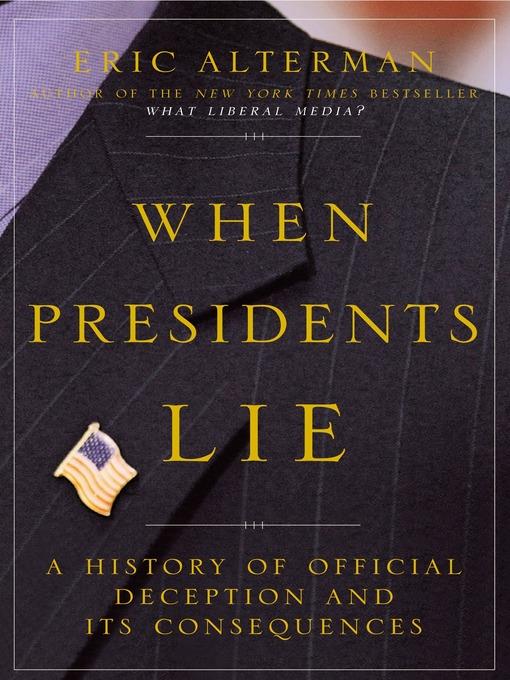
When Presidents Lie
A History of Official Deception and Its Consequences
کتاب های مرتبط
- اطلاعات
- نقد و بررسی
- دیدگاه کاربران
نقد و بررسی

August 23, 2004
Mendacity has increasingly become a journalistic touchstone for analyzing America's international relations. Alterman, best known as a columnist for the Nation
and author of What Liberal Media?,
presents his case for what he calls four key lies U.S. presidents told world citizens during the 20th century. Franklin Roosevelt lied, he says, about the nature of the Yalta accords, creating the matrix for a half-century of anti-Soviet paranoia. John F. Kennedy lied about the compromise that settled the Cuban missile crisis, and kept the Cold War alive by humiliating the U.S.S.R. Lyndon Johnson lied about the second Tonkin Gulf incident, and moved the U.S. down a slippery slope that destroyed his hopes of creating a Great Society. Ronald Reagan lied about his policies in Central America, creating a secret and illegal foreign policy that resulted in "the murder of tens of thousands of innocents." Alterman interprets this pattern as a consequence of mistaken American beliefs: belief in providence watching over the U.S., belief in American moral superiority abroad and belief, unfulfilled, in unyielding commitment to democracy at home—all of these things are easy to stump on, but impossible, Alterman argues, to demonstrate. These "delusions" in turn create an unrealistic picture of the world, one immune to education regarding reality. All of this, predictably enough, leads to George W. Bush, whose administration is dismissed as a "post-truth presidency." The American-centered perspective of Alterman's case studies overlooks the many times when the U.S. was outmaneuvered (or deceived) by other players to a point where truth became obscured by means other than executive mendacity. Alterman also allows little room for mistakes or plain incompetence on the part of the administrations in question. But his conceit is otherwise carefully and compellingly executed, and sets the stage for debate. (On sale Sept. 27)
Forecast:
This book's historical grounding sets it apart from other "Bush lies" books this season; look for excellent coverage and corresponding sales—the snappy title guarantees an audience beyond the
Nation set.

September 15, 2004
Although we are occasionally shocked upon learning that a president has lied, Alterman maintains that presidents routinely lie, often with consequences that shape and reverberate through our history. Alterman focuses on four key presidential lies: Franklin Roosevelt and the Yalta accords, John F. Kennedy and the Cuban missile crisis, Lyndon Johnson and the second Gulf of Tonkin incident, and Ronald Reagan and Central America in the 1980s. Looking beyond the moral aspects of the deceptions, Alterman examines the destructive consequences: Yalta, for example, led to 40 years of cold war. For each lie, he offers details of the particular deception and the long-term effects for the president, his party, and the nation. "Without exception, each of the presidencies (or successor presidencies) paid an extremely high price for its lies," he notes. The nation, of course, has paid a price as well. He concludes with a chapter that examines President Bush's posture on the war in Iraq in the broader context of presidential deception. A timely and insightful book.(Reprinted with permission of Booklist, copyright 2004, American Library Association.)

























دیدگاه کاربران